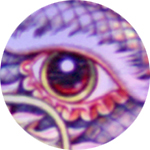Researchers: Even Fake Acupuncture Works
By CARLA K. JOHNSON, Associated Press Writer
Monday, September 24, 2007
(09-24) 13:00 PDT CHICAGO, (AP) --
Fake acupuncture works nearly as well as the real thing for low back pain, and either kind performs much better than usual care, German researchers have found.
Almost half the patients treated with acupuncture needles felt relief that lasted months. In contrast, only about a quarter of the patients receiving medications and other Western medical treatments felt better.
Even fake acupuncture worked better than conventional care, leading researchers to wonder whether pain relief came from the body's reactions to any thin needle *****s or, possibly, the placebo effect.
"Acupuncture represents a highly promising and effective treatment option for chronic back pain," study co-author Dr. Heinz Endres of Ruhr University Bochum in Bochum, Germany, said in an e-mail. "Patients experienced not only reduced pain intensity, but also reported improvements in the disability that often results from back pain and therefore in their quality of life."
Although the study was not designed to determine how acupuncture works, Endres said, its findings are in line with a theory that pain messages to the brain can be blocked by competing stimuli.
Positive expectations the patients held about acupuncture — or negative expectations about conventional medicine — also could have led to a placebo effect and explain the findings, he said.
In the largest experiment on acupuncture for back pain to date, more than 1,100 patients were randomly assigned to receive either acupuncture, sham acupuncture or conventional therapy. For the sham acupuncture, needles were inserted, but not as deeply as for the real thing. The sham acupuncture also did not insert needles in traditional acupuncture points on the body and the needles were not manually moved and rotated.
After six months, patients answered questions about pain and functional ability and their scores determined how well each of the therapies worked.
In the real acupuncture group, 47 percent of patients improved. In the sham acupuncture group, 44 percent did. In the usual care group, 27 percent got relief.
"We don't understand the mechanisms of these so-called alternative treatments, but that doesn't mean they don't work," said Dr. James Young of Chicago's Rush University Medical Center, who wasn't involved in the research. Young often treats low back pain with acupuncture, combined with exercises and stretches.
Chinese medicine holds that there are hundreds of points on the body that link to invisible pathways for the body's vital energy, or qi. The theory goes that stimulating the correct points with acupuncture needles can release blocked qi.
Dr. Brian Berman, the University of Maryland's director of complementary medicine, said the real and the sham acupuncture may have worked for reasons that can be explained in Western terms: by changing the way the brain processes pain signals or by releasing natural painkillers in the body.
In the study, the conventional treatment included many methods: painkillers, injections, physical therapy, massage, heat therapy or other treatments. Like the acupuncture patients, the patients getting usual care received about 10 sessions of 30 minutes each.
The study, appearing in Monday's Archives of Internal Medicine, used a broad definition for low back pain, but ruled out people with back pain caused by spinal fractures, tumors, scoliosis and pregnancy.
Funding came from German health insurance companies, and the findings already have led to more coverage in Germany of acupuncture.
In the United States, some health plans cover acupuncture for some conditions, but may require pre-approval, according to the National Center for Complementary and Alternative Medicine. An acupuncture session can cost $45 to $100, Young said.



 Reply With Quote
Reply With Quote






